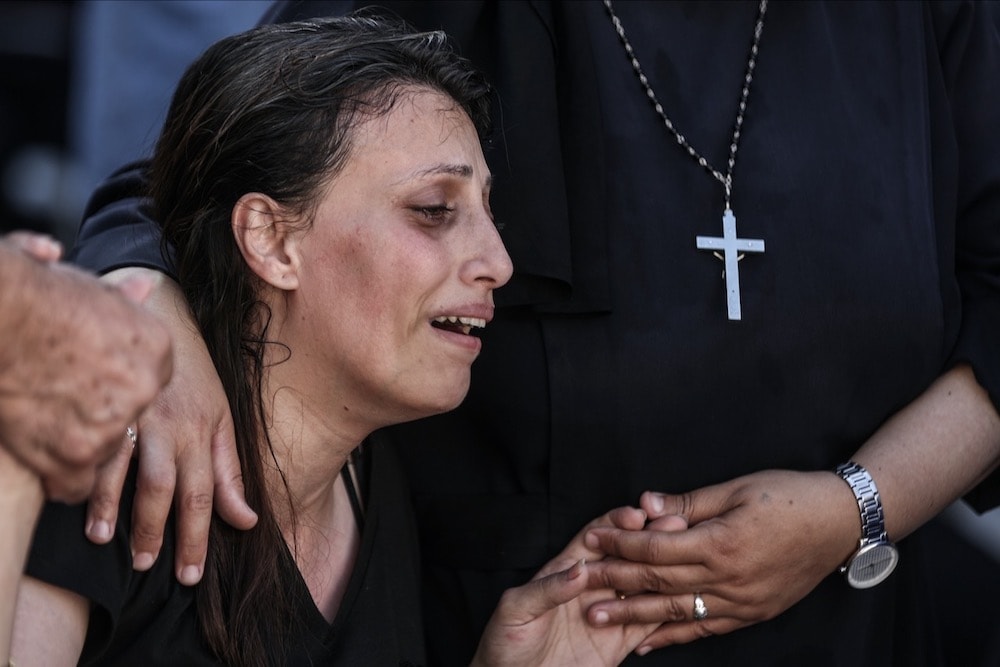International humanitarian law applies to all: do not deliberately or indiscriminately attack civilians, do not take hostages, do not punish civilians for the actions of individuals, do not deny or withhold humanitarian assistance.
Ed. Note: At the time of publishing this piece, we at IFEX are bearing witness to the atrocious escalation of violence in Palestine and Israel. In this worrisome context, we express our firm solidarity with IFEX members MADA, 7amleh, I’Iam and Visualizing Impact, and with our colleagues throughout the region, as the consequences of the conflict spread beyond their borders.
This statement was originally published on hrw.org on 19 October 2023.
Violations of these laws by one side do not justify violations by another
No two armed conflicts are the same. But the demands of international humanitarian law to protect civilians apply to all: do not deliberately or indiscriminately attack civilians, do not take hostages, do not punish civilians for the actions of individuals, do not deny or withhold humanitarian assistance.
The principle of nonreciprocity inherent in the laws of war also applies to all conflicts. Violations of these laws by one side do not justify violations by another.
In Ukraine, the United States and European governments have rightly upheld these life protecting principles and denounced flagrant violations by Russian forces including indiscriminate attacks, unlawful killings, extrajudicial executions, cutting of electricity and water, and torture. And Europe and the US have also rightly supported international efforts to achieve justice for the victims.
Fast forward 18 months from Russia’s all-out invasion of Ukraine to the new escalation of hostilities in Israel and Palestine. On the weekend of October 7 and 8, the United States and European countries quickly and rightly denounced the brutal Hamas-led attacks against Israel in which Palestinian armed groups killed more than 1,400 men, women, and children and took almost 200 hostages. They also quickly and rightly called for those responsible to be held to account and for hostages to be released.
But the reaction from Washington and – with a few exceptions – from European capitals to Israel’s actions in Gaza since October 7 has been muted. Where is the clear condemnation of the cruel tightening of the 16-year closure of Gaza that amounts to collective punishment, a war crime? Where is the outrage at statements by Israeli political leaders that seek to blur the all-important distinction between civilians and combatants in Gaza even as they order ever more intense bombardment of this densely populated territory, reducing city blocks and neighborhoods to rubble? Where are the clear and unequivocal calls for Israel to respect international norms in its attack on Gaza, let alone for accountability?
For a year and a half, Western states, in their efforts to muster international support for Ukraine and to isolate Russia, have been rightly underlining to the rest of the world the importance of upholding rules governing armed conflict in the context of Ukraine. But now the rest of the world sees a muted reaction to the devastating harm done to civilians by Israel’s blockade and assault on Gaza.
The hypocrisy and double standards of Western states are flagrant and obvious. They risk undermining years of painstaking work by humanitarian and human rights groups, along with some states, to strengthen and standardize norms designed to protect civilians caught up in conflicts around the world.
If Western states want to convince the rest of the world to believe what they say about values, human rights and international laws governing armed conflict, the universal principles they rightly apply to Russian atrocities in Ukraine and to Hamas atrocities in Israel also have to apply to Israel’s brutal disregard for civilian life in Gaza.



